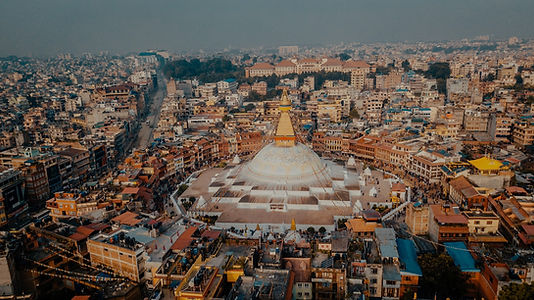
General Overview
Basic Information
Nepal is a landlocked country located in the middle of the Himalayas, surrounded by India to the east, west, and south, and China's Tibet Autonomous Region to the north. It is a naturally rich country with diverse cultures, where various ethnic groups coexist, each with its own language, religion, and custom. Approximately 80% of the population follows Hinduism, and the society has a complex structure intertwined with the ethnicities and the caste system.

Economy
Agriculture and forestry are the primary industries in Nepal, constituting approximately 25.8% of the GDP, with around 64% of the workforce engaged in these sectors. GDP per capita is about $1,208, and 79% of the population resides in rural areas. Nepal is considered one of the least developed countries.

Climate
Nepal has a subtropical climate with a distinct wet season from June to the first half of September and a dry season from the latter half of September to May. The capital, Kathmandu, is situated at an elevation of 1,300 meters, surrounded by mountains in a basin. The average temperatures in July and August are around 24 degrees Celsius, making it comfortable, and even in December and January, temperatures rarely drop below freezing. However, the basin's topography leads to significant temperature variations between day and night.

Transportation
Nepal lacks a railway system, and the primary modes of transportation include buses, tempos (small three-wheeled vehicles), taxis, rickshaws (three-wheeled human-powered carts), motorcycles, and private cars.
Regional buses and tempos play a crucial role as transportation means for Nepali people, with long-distance buses commonly used for travel within Nepal.
Due to the insufficient development of transportation means and traffic rules, traffic jams are prevalent. Traffic signals and pedestrian crossings are almost non-existent, requiring individuals to navigate road crossings by carefully timing their movements, adding an element of excitement to the experience.




National Character
Nepali people share certain similarities with Japanese people. Firstly, they have a strong inclination towards hospitality.
When staying with a Nepali family, they warmly welcome you, offering tea even for simple visits and preparing meals until you are satisfied.


Moreover, they are friendly and approachable, creating a connection even when there is a language barrier. While their sense of personal space might be closer compared to Japanese people, it adds to the charm of Nepali individuals. Returning to Japan from Nepal, Japanese people might seem reserved in comparison, possibly due to these differences in social interactions.
Culinary Culture
In Nepal, a typical home-cooked meal is represented by "Dal Bhat." This consists of a plate of Dal (lentil soup), Bhat (rice), and often accompanied by Tarakari, a vegetable stir-fry. It's rich in spices, resembling the appearance and taste of curry.
Another notable dish is called "Momo. Similar to spicy dumplings (Gyoza)in Japan, Momo features a filling and a sauce with abundant spicy spices, showcasing a level of spiciness beyond what meets the eye.
During tea time, tea with sugar, milk, and distinctive spices is enjoyed. Unlike Japanese tea, Nepali tea comes in various sweetness levels and spice combinations, offering a diverse range of flavors. Since each household has its own spice blend, you can enjoy various tea.



Reference:
- Nepal Basic Data, Ministry of Foreign Affairs [Ministry of Foreign Affairs Website](https://www.mofa.go.jp/mofaj/area/nepal/data.html)
- Country and Region Information: Nepal, Ministry of Health, Labour and Welfare [Ministry of Health, Labour and Welfare Website](https://www.forth.go.jp/destinations/country/nepal.html)
- Nepal Profile, Ministry of Foreign Affairs Nepal [Ministry of Foreign Affairs Nepal Website](https://mofa.gov.np/nepal-profile-updated/)

Donate
Our activities are centered around the medium- to long-term goal of "creating a medical system."
If you agree with ASHA's philosophy and activities to change the future of medical care in Nepal,
We would appreciate your support.
*Donations to the special NPO ASHA are eligible for preferential tax deductions.


